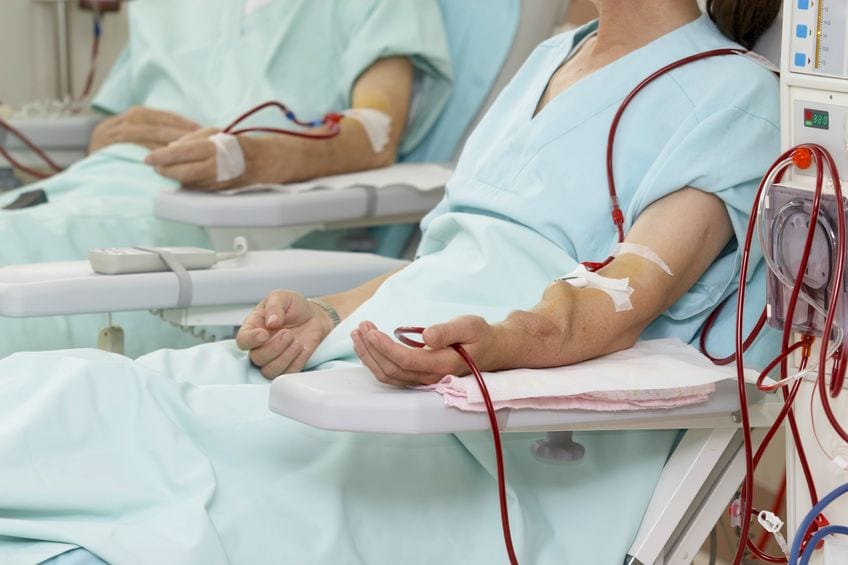
Some Pros And Cons Of Kidney Dialysis That You Need To Know
When the kidneys are unable to work correctly, renal dialysis is performed. It is a medical therapy that eliminates waste and extra fluid from the body. Dialysis has some disadvantages. But it can be a life-saving procedure for those with end-stage kidney disease. Let’s discuss some advantages and disadvantages of renal dialysis told by the best nephrologist in Lahore.
Kidney Dialysis Advantages
1- Maintains Body Function
Kidney dialysis aids in the removal of waste materials and surplus fluid from the body. These materials can accumulate and lead to major health issues. When the kidneys stop working, the body is overburdened with waste materials and poisons. These toxins can harm other organs and systems. Maintaining bodily functions with dialysis also reduces the risk of potentially fatal consequences like heart disease, stroke, and kidney failure.
2- Enhanced Quality of Life
People with end-stage renal illness frequently experience some unpleasant symptoms. These symptoms include fatigue, nausea, and vomiting. They can be relieved with the help of dialysis. It will improve the patient’s quality of life. Numerous dialysis patients can still work, interact with others, and engage in hobbies and interests.
3- Increased Lifespan
Dialysis can help people with end-stage renal disease live much longer. In the past, renal failure was almost always fatal. Today, dialysis allows patients to live for many years. The National Kidney Foundation estimates that a dialysis patient can expect to survive for five to ten years on average. However, some can live for much longer.
4- Flexibility
Dialysis can be carried out in a range of locations, such as clinics, hospitals, and even at home. Patients now have more flexibility and control over their care. Particularly with home dialysis, patients can plan their appointments around regular activities rather than needing to spend hours at a hospital or clinic.
5- Lower Risk of Infection
Bloodstream infections, in particular, are more likely to affect those with end-stage kidney failure. Through the removal of toxins and waste products that can spread infection, dialysis can help to lower this risk. Modern dialysis procedures have also substantially decreased the danger of infection by employing sterile fluids and equipment.
6- Can Act as a Bridge to Transplantation
While a patient waits for a kidney transplant, dialysis can act as a temporary solution. This can be especially useful for patients who are having trouble locating a compatible donor or who are not yet in a position to get a transplant. Until a transplant is available, dialysis can keep the patient stable and healthy.
Kidney Dialysis Drawbacks
1- Time Consuming
Dialysis can take many hours every session, several times per week, and can be a time-consuming process. For those who have busy schedules, want to keep working, or want to engage in other activities, this can be challenging. Additionally, the length of time a patient spends receiving dialysis may restrict their capacity to travel or engage in other activities.
2- Side Effects
Dialysis can have some side effects, such as nausea, vomiting, cramps in the muscles, and low blood pressure. As the body gets used to the dialysis procedure during the first few weeks of treatment, these side effects can become particularly severe. These side effects can still be unpleasant and disruptive. Even though many people can control them with medication and other treatments.
3- Risk of issues
Dialysis can increase your risk of getting infections, blood clots, blood vessel damage, and nerve damage, among other issues. These issues can be severe and may require further medical treatment.
4- Dietary Restrictions and Lifestyle Changes:
Dialysis patients frequently need to follow a strict diet plan. They also need to undergo major lifestyle modifications, such as cutting back on their fluid consumption and avoiding particular foods. For some patients, who are used to eating and drinking whatever they want, this can be difficult and have an impact on their quality of life. It can be challenging to maintain the fluid intake restrictions because it’s difficult to resist drinking when you’re thirsty.
5- Cost
Dialysis treatments can be expensive, especially for those without health insurance or with limited coverage. The type of treatment and the environment in which it is carried out can also affect the cost of dialysis. Some patients and their families may experience financial hardship as a result of this.
Conclusion
Renal dialysis helps to remove waste products and extra fluid from the body. It maintains body function and can be a life-saving treatment for those with end-stage kidney disease. Additionally, it can lengthen life, increase flexibility, lower infection risk, and act as a bridge to transplantation. However, there are some disadvantages to dialysis such as the lengthy nature of the procedure, side effects, risk of complications, dietary and lifestyle restrictions, expense, and emotional burden. The advantages and disadvantages of renal dialysis should be thoroughly examined. You can also ask for other options from your healthcare provider or a nephrologist.




